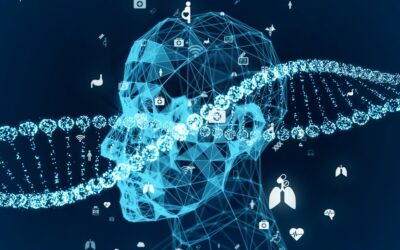Artificial Intelligence (AI) is poised to revolutionize the healthcare industry, heralding a new era of medical innovation that promises to transform patient outcomes, hospital operations, and healthcare delivery. While AI technologies have already made inroads into the medical field, the pace of integration is expected to accelerate in the coming years, bringing about sweeping changes across various aspects of healthcare.
Enhanced Diagnostics and Predictive Analytics
One of the most profound impacts of AI will be in the realm of diagnostics. Machine learning algorithms have demonstrated exceptional accuracy in detecting and diagnosing medical conditions, from analyzing X-rays and MRI scans to identifying early signs of diseases such as cancer and Alzheimer’s. These algorithms can process large volumes of medical images rapidly, reducing diagnostic time and aiding in faster intervention. Predictive analytics powered by AI can also assist in risk stratification, helping medical professionals identify patients who are more likely to develop complications, thereby enabling preventative treatments.
Telemedicine and Remote Monitoring
The ongoing global pandemic has already accelerated the adoption of telemedicine, and AI is expected to further refine and expand this modality. Virtual health assistants, driven by natural language processing, can offer basic medical consultation based on the medical information fed into them, significantly reducing the need for in-person visits for minor ailments. Remote monitoring technologies, enhanced by AI, can continuously track vital signs and chronic conditions, alerting healthcare providers about any critical changes in the patient’s condition.
Streamlined Operations
AI has the potential to revolutionize the operational aspects of healthcare facilities. Intelligent algorithms can manage supply chain logistics, optimize staff schedules, and even assist in patient management by automating appointment bookings, billing, and record-keeping. This results in improved efficiency, reduced operational costs, and allows healthcare providers to focus more on patient care rather than administrative tasks.
Ethical and Regulatory Considerations
As healthcare becomes increasingly reliant on AI, there are ethical and regulatory challenges to consider, such as data privacy, algorithmic bias, and the legal implications of machine-led diagnostics and treatments. Adequate measures, including robust cybersecurity protocols and transparent algorithms, are crucial for the responsible integration of AI into healthcare.



